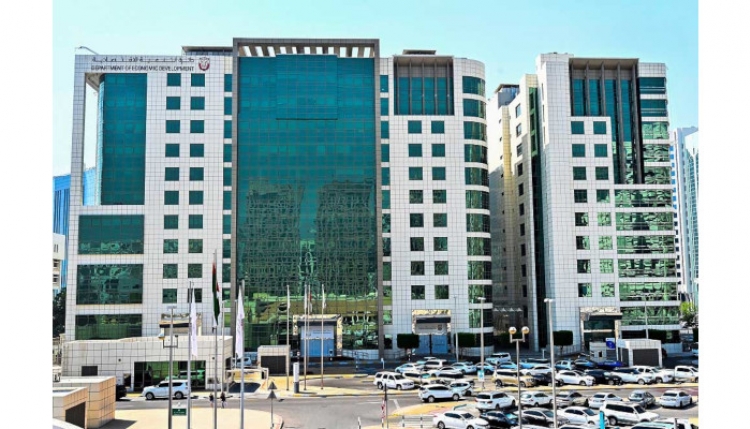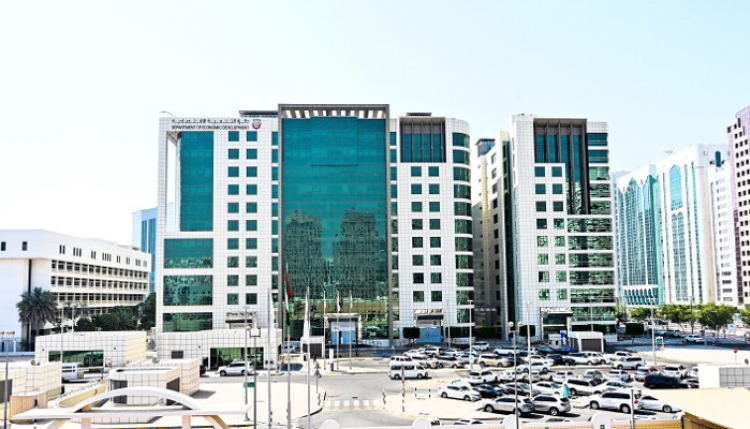Abu Dhabi - MENA Herald: The Global Manufacturing and Industrialisation Summit (GMIS) today announced the initial line-up of confirmed speakers for the Global Agenda on the Future of Manufacturing, including global decision-makers from across government, industry and civil society, who are set to plot a new path for manufacturing as an agent of transformation for the global good. A joint initiative by the United Arab Emirates (UAE) Ministry of Economy and the United Nations Industrial Development Organisation (UNIDO), and co-hosted with the Abu Dhabi Department of Economic Development, the Global Manufacturing and Industrialisation Summit is the world's first global gathering for the manufacturing community. It will be held at the Paris-Sorbonne University on Al Reem Island in Abu Dhabi, the capital of the UAE, between March 27 and 30, 2017 under the patronage of His Highness Sheikh Mohamed bin Zayed Al Nahyan, Crown Prince of Abu Dhabi and Deputy Supreme Commander of the UAE Armed Forces.
The Global Agenda on the Future of Manufacturing will focus on the role of manufacturing in reconstructing the global economy and restoring global prosperity. Leaders from the public and private sectors, along with civil society representatives, will gather together to discuss global challenges facing the manufacturing sector, focusing on six themes: technology and innovation; global value chains; skills, employment and education; sustainability and environment; infrastructure; standards and stakeholder alignment.
Speakers and delegates at the Summit will discuss ways in which nations can adopt a transformational approach towards global manufacturing, enabling the sector to meet the needs of the world’s economy, businesses and societies. Initial confirmed speakers include H.E. Tarek Kabil, Minister of Trade and Industry, Egypt; H.E. Dr Elham M.A. Ibrahim, Commissioner for Infrastructure and Energy, African Union; Joe Kaeser, President and Chief Executive Officer, Siemens; Elżbieta Bieńkowska, Commissioner for the Internal Market, Industry, Entrepreneurship and SMEs, European Commission; Mustafa Ayhan, Regional IT Director, Turkey, Greece, Middle East and North Africa, Bosch; Dr Carlos Lopes, Former Executive Secretary, United Nations Economic Commission for Africa; Bernard Charlès, Vice Chairman, Chief Executive Officer, Dassault Systemes, and Jean Bennington Sweeney, Chief Sustainability Officer, 3M.
The Global Manufacturing and Industrialisation Summit will be driven by outcomes, tackling pressing global challenges such as sustainable economic growth, skills and employment gaps, and resourcing and production challenges. The focus areas of the Summit will explore how industry, government and civil society leaders across the globe can work together to use manufacturing, powered by the technological disruption, to unlock opportunities and overcome challenges.
In his keynote panel, H.E. Tarek Kabil, Minister of Trade and Industry, Egypt, will examine the influence of the technological revolution on strategic policy-making and national economic structures. “Disruptive technologies are impacting global trade patterns, value chains and employment profiles,” he said. “Government leaders will need to be agile enough to harness the positive disruptive potential of technology and make it work for the people they serve. With automation comes the ability to drive productivity gains, improve competitiveness, and deploy new tools for progress in social infrastructure like hospitals, schools and other social services. How we prepare for this new age of automation, ensuring that we have the right industrial policies in place to advance our nations, will be a collective task enabled by governments, enterprise and civil society leaders working together in the common good.”
The infrastructure of the future will be the focus point of the panel in which H.E. Dr Elham M.A. Ibrahim, Commissioner for Infrastructure and Energy, African Union, is participating. She said: “Without the supporting infrastructure in place to support the Fourth Industrial Revolution, companies and countries alike will struggle to stay sustainable as they grow. It is crucial that the public and private sectors work together to develop cost-effective and efficient infrastructure that is capable of meeting the requirements of developing manufacturing sectors, in order to maximise economic and industrial growth. By gathering representatives from Government, NGOs and the private sector at the Global Manufacturing and Industrialisation Summit, we are taking the first and most important step towards a unified approach to a sustainable future.”
"Digitalisation is revolutionising an industry that accounts for about 70 percent of global trade: manufacturing,” said Joe Kaeser, President and Chief Executive Officer of Siemens. “This ’Fourth Industrial Revolution,” or “Industry 4.0,’ will have a massive impact on national economies. Productivity and the speed of innovation will rise dramatically, the weak parts of value chains will be eliminated, jobs existing there will be lost, and new jobs will be created that require advanced digital skills. There will be significant disruption. So the challenge is this: How can we make sure that digitalisation unfolds the greatest possible benefit for society as a whole? The Global Manufacturing and Industrialisation Summit offers an excellent opportunity to discuss this issue and, yes, to shape the future of society.”
The Global Manufacturing and Industrialisation Summit will be a meeting place for all types of manufacturing - from low tech to high tech and across emerging economies and developed nations.
Mike Singh, Chairman, TC Group, and Distinguished Fellow at Jindal School of International Affairs in India, will focus on South Asia, showing how low-cost bases have led to an increase in production. “But, in some parts of the Indian sub-continent, concerns remain about social injustice, working conditions and pay levels,” said Singh. “We must ask how policy-makers can collaborate with the industry to ensure international standards are met while developing a sustainable, diversified industrial strategy.”
At her panel on Environmental Stewardship and Competitive Industrialisation, Jean Bennington Sweeney, Chief Sustainability Officer, 3M, will trace how economic prosperity can operate in parallel with responsible care for the world we share. “Innovation is a business imperative just as much as environmental stewardship is fundamental to the future of the planet,” said Bennington Sweeney. “The challenge is to use innovation to bridge the gap between industry and the environment. As well as that, we must examine how we can move towards standardising regulatory and legal frameworks globally so that environmental targets can be met while maintaining competitiveness.”
Breakout sessions at the Global Manufacturing and Industrialisation Summit will focus on various sectors, including food and beverage, automotive, pharmaceuticals, aerospace, electronics, and textiles and garments. Regionally focused sessions will examine manufacturing trends in the US, East Asia, Europe, Africa, South Asia and Latin America.
Speakers at the sector and region-focused sessions include prominent names such as Jan Pie, Secretary General, AeroSpace and Defence Industries Association of Europe, and Chairman-Elect, International Coordinating Council of Aerospace Industries Associations; Dr Carlos Lopes, Former Executive Secretary, United Nations Economic Commission for Africa, and Dr Benjamin Seet, Executive Director, Biomedical Research Council, Agency for Science Technology and Research (A*Star), Singapore.
The Global Manufacturing and Industrialisation Summit agenda includes discussions on key topics and challenges facing the sector, including the power of disruption, predicting the ‘Fifth Industrial Revolution’, roles and skills in the manufacturing workforce, shifting economies, global supply chains, future infrastructure, financing technological convergence and environmental stewardship.
Expected to attract 1,200 of the world’s leaders from industry, government and civil society, the speakers at the Global Manufacturing and Industrialisation Summit will include prominent figures from across numerous verticals, including aerospace, automotive, technology, food production and healthcare.
Badr Al-Olama, Chief Executive Officer, Strata Manufacturing, and Head of the Global Manufacturing and Industrialisation Summit Organising Committee, said: “The Global Manufacturing and Industrialisation Summit is attracting the highest calibre of speakers because the world has been waiting impatiently for an international platform that fosters global dialogue on industrial sustainability, and urges solutions to problems that face society. By combining our collective expertise and convening thought-leaders from across government, industry and civil society, we have an opportunity to catalyse radical action that can change the state of our world for future generations.”






